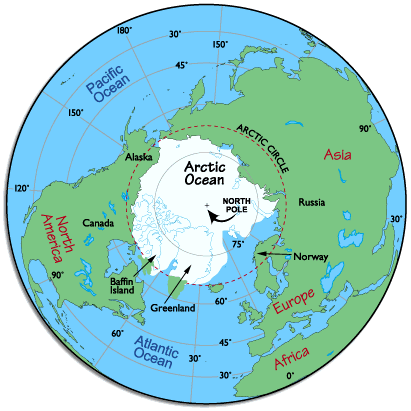A hot topic in the news these days is the future of the Arctic. With the Arctic warming and ice melting at increasingly rapid rates, a variety of economic opportunities arise. Canada, Russia, and Asian nations stand to profit and experience economic growth from the opening of new trade passages such as the North East and North West Passages. Oil companies, such as ExxonMobil, are already making deals with Arctic nations to explore vast resources of oil underneath the Arctic sea. Warming will allow for increased agricultural production in Greenland and increased mining operation throughout the region.
All of these developments will no doubt result in significant economic gain, but at what cost? Species such as the polar bear will most likely be driven to extinction and entire ecosystems will be severely damaged. Melting Arctic ice could lead to global sea levels rising up to 0.6 meters and the release of greenhouse gases trapped underneath the ice pack. Both the release of these gases and the development of hydrocarbon deposits will exacerbate climate change.
So is it ethical for businesses to profit if it results in the extinction of entire species, possibly impairs future generations, and ignores climate change? In my opinion, the ethical risks should out weigh any profit motives.
Article:
http://www.economist.com/node/21556798
Image:
World Atlas. “North Pole Arctic Map.” Map. World Atlas.com 12 Sept. 2012
<http://www.worldatlas.com>.


I think the oil companies won’t have any problems to find more oil (especially when the polar cap dissapeares). However, in the future struck by the climat change they may have difficulties finding consumers for their goods as their products will hopefully become obsolete.
On the other hand, economic gains will be very small compared with the losses, not only in wild life but also in land flooded by the oceans and recurring natural disasters.